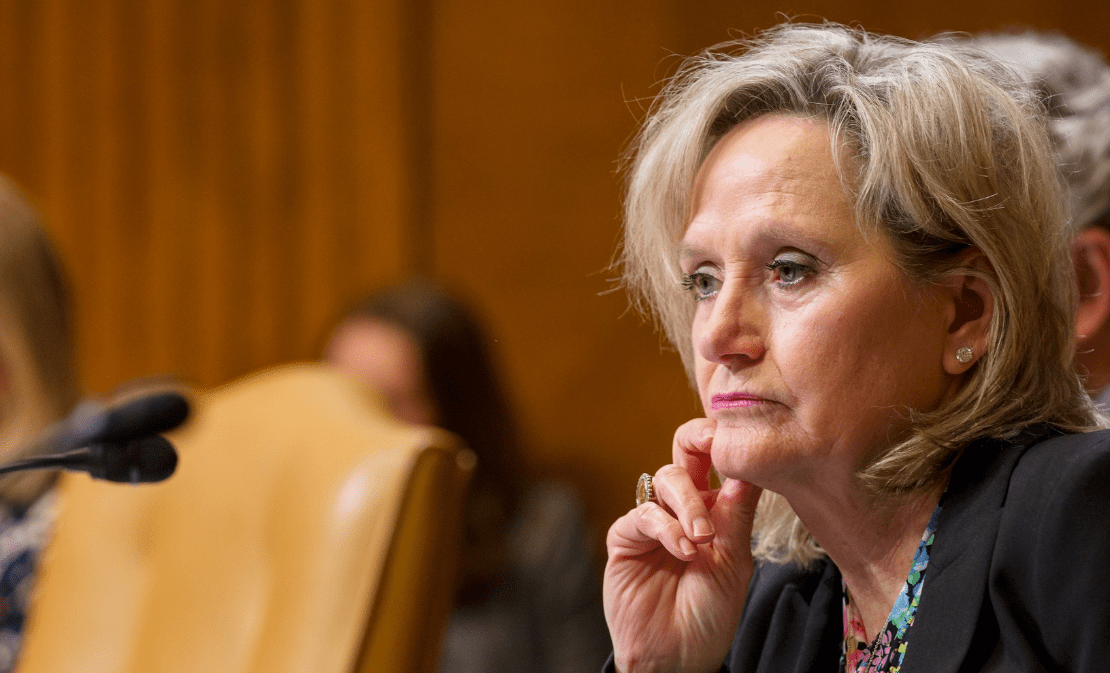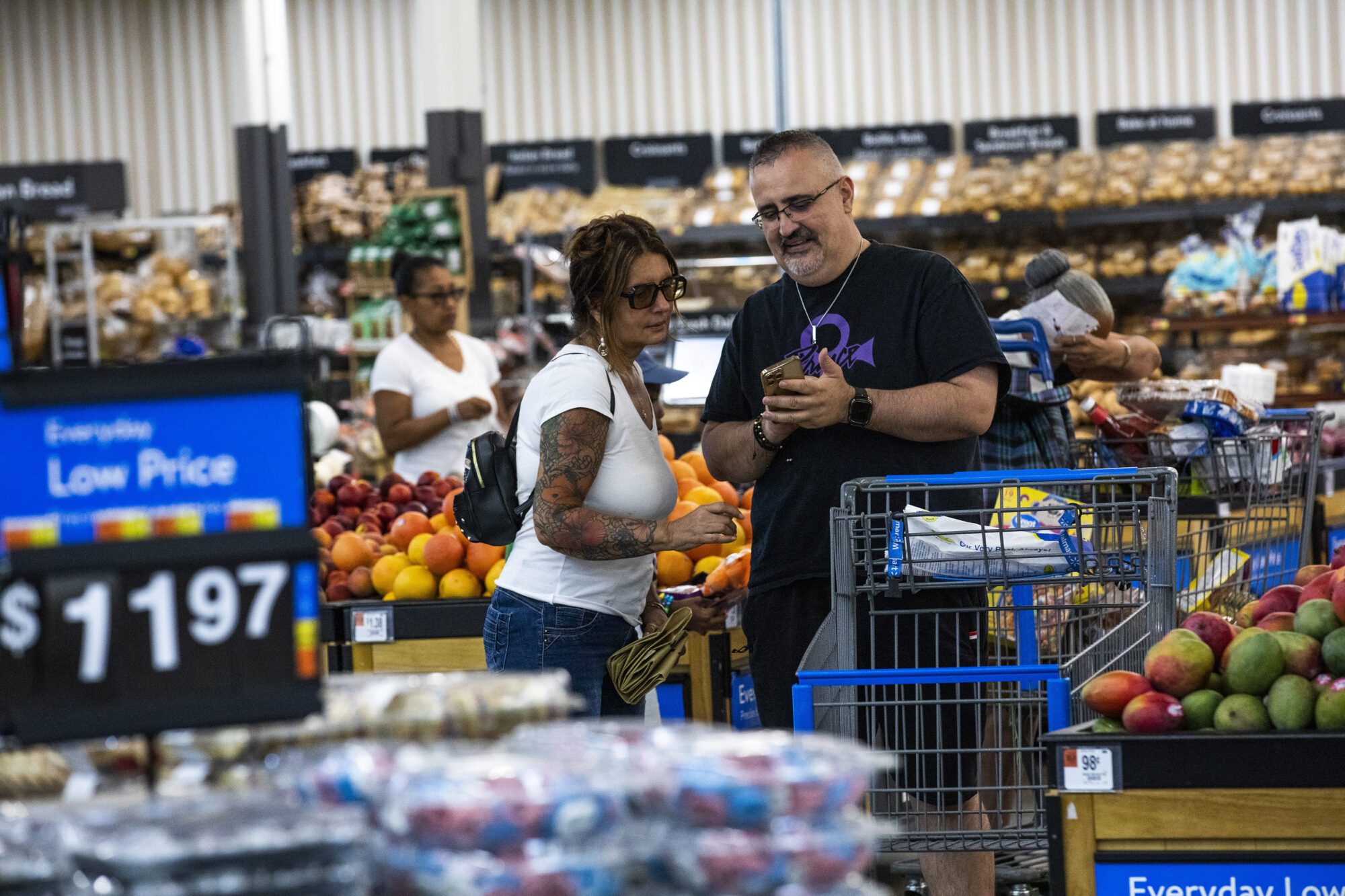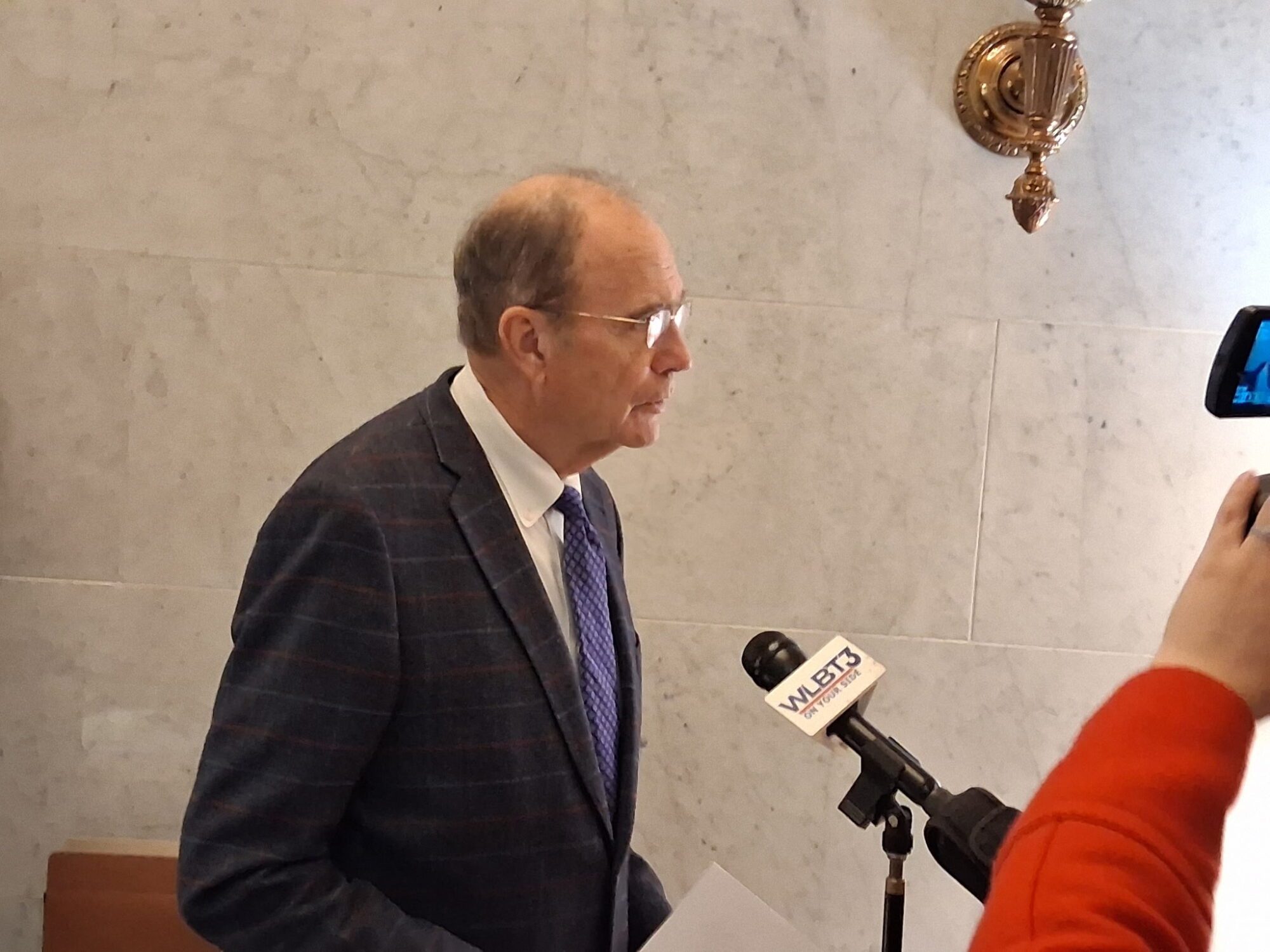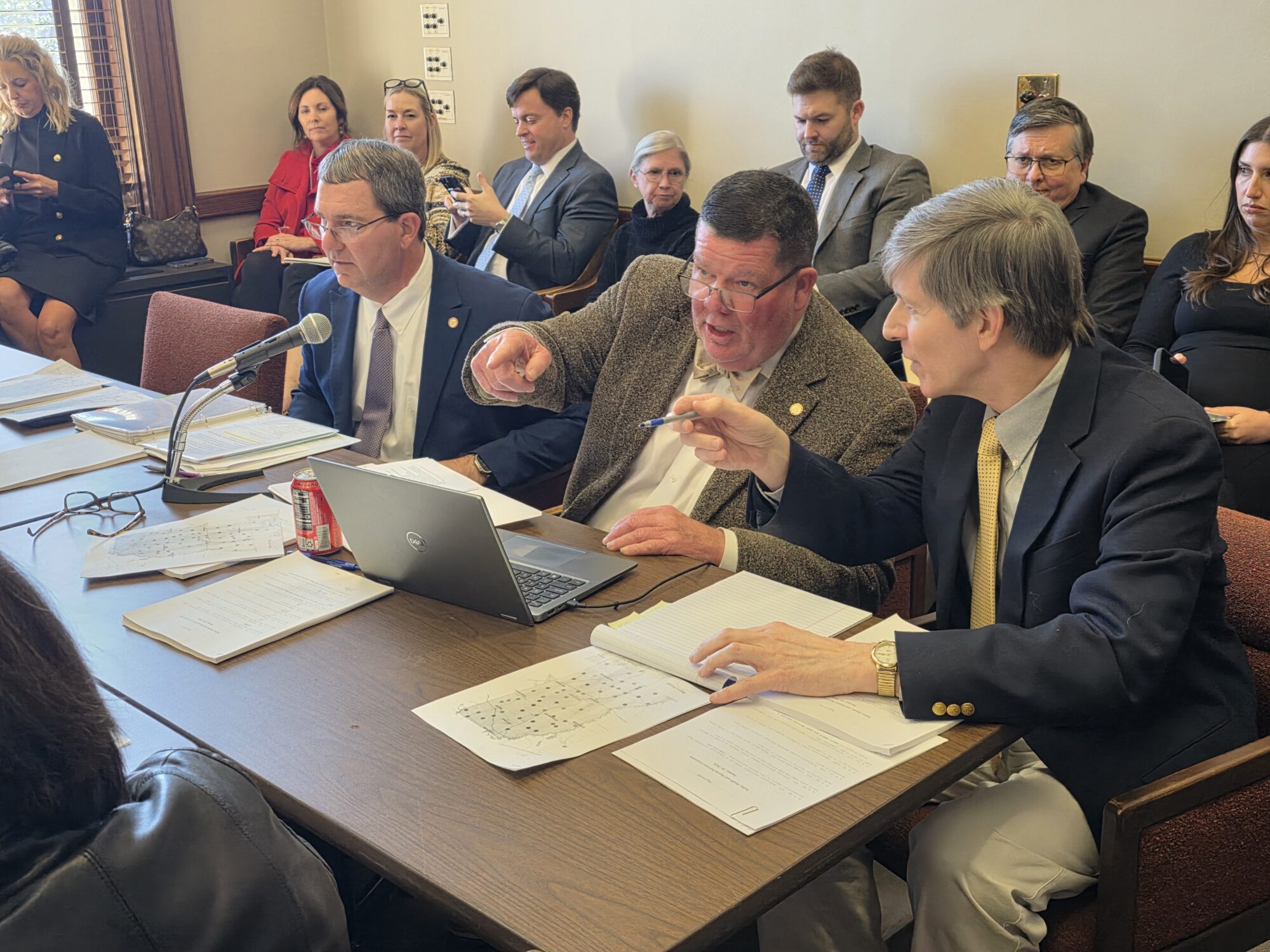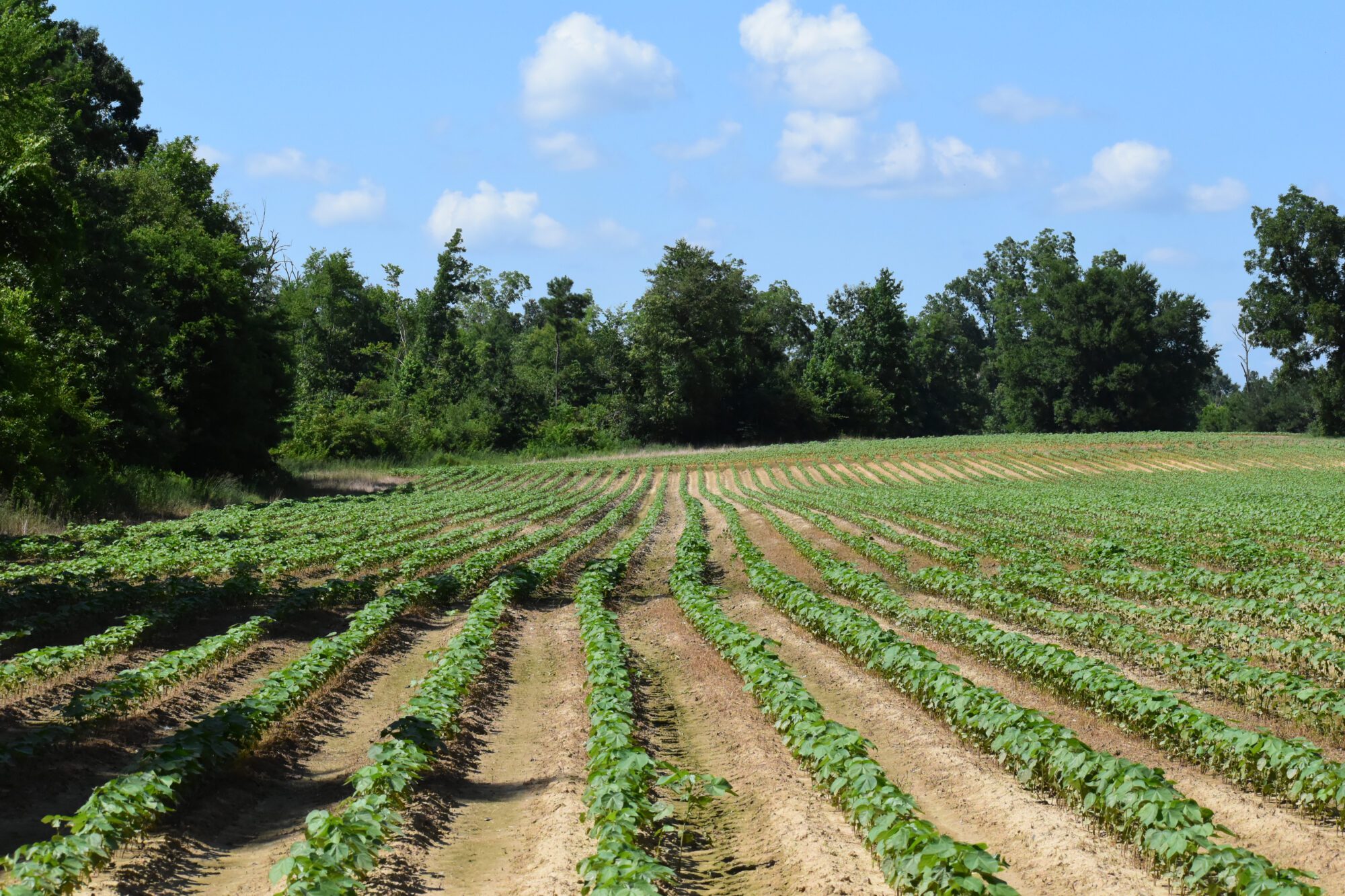
Crop rows on Mississippi farm (Photo from Shutterstock)
- Mississippi State’s research says the current economic situation for row crop producers is the worst it’s been in many years.
A new report from Mississippi State University says row crop producers faced an uphill struggle coming into 2025. Now, given extreme weather events coupled with financial stress in the farm sector, the current economic situation is the worst it’s been in many years.
“More specifically to Mississippi producers, all the major row crop commodities grown in Mississippi showed very tight budgets coming into the growing season,” the MSU 2025 Mississippi Row Crop Situation report stated. “As the season has progressed those budgets have tightened further due to falling commodity prices brought on by somewhat adequate supplies and the potential of tariffs decreasing export markets.”

Lt. Governor Delbert Hosemann (R) shared the MSU report on Thursday, noting that the outlook for Mississippi’s farm sector was discussed in prior Senate hearings. He said “the prospects for devastating losses in our Agriculture sector have now materialized.”
“Our farmers and agricultural businesses need our support now more than ever, and we will have meetings aimed at providing solutions and planning for the future,” Hosemann said.
As stated in the MSU report, the overall farm economy statewide and nationally was somewhat tempered by the livestock sector which was and still is experiencing record high prices.
“However, the dramatic differences between row crop input costs and prices received continues to outweigh the economic prosperity in the livestock sector,” the research outlined.
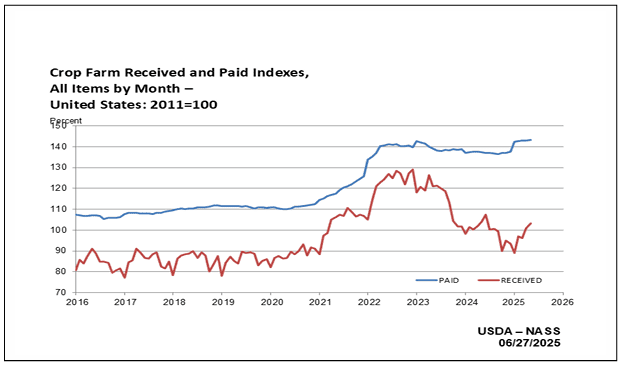
The report points to the “gap” between row crop producer expenses and expected returns, which is significant. Part of this difference, the report states, is production costs.
“There were some slight improvements in variable costs over 2024 due to lower fuel and fertilizer prices, at least at the beginning of the growing season. However, these improvements in variable costs were almost completely offset by increases in fixed costs,” the report noted. “Together, these cost estimates are among the highest on record. Further contributing to the ‘gap’ between producer returns and expenses is what has been happening in the commodity market.”
The MSU report said while producers did receive a small ad hoc payment in the spring of 2025 and are currently signing up for disaster payments for the 2023 and 2024 crops where eligibility is allowed, the outdated federal Farm Bill means the 2024 crop will receive limited farm programs payments in the fall of 2025.
As for the One Big Beautiful Bill Act passed by Congress and signed into law by President Donald Trump (R) this summer, the report said it “was a win for row crop producers.” However, any farm program payments available from the OBBBA will not be available until fall of 2026.
Congress is now considering a “skinny Farm Bill” to round out what lawmakers would like to included in the next round of legislation to address the nation’s agriculture sector that were not included in the OBBBA. Whether those talks result in a bill that can pass both chambers remains to be seen as lawmakers have largely taken to their corners following the reconciliation process that allowed the Republican majority to pass the OBBBA.
“Under the current circumstances, row crop producers in Mississippi are facing a very tough road ahead,” the report concludes.

Mississippi Agriculture and Commerce Commissioner Andy Gipson (R) told Magnolia Tribune that the recent MSU report is only the most recent reminder of the huge challenges faced by the state’s row crop producers, saying it is “the result of a four-years-long nationwide agricultural trade deficit under the failed Biden Administration.”
“I highlighted in some detail those systemic problems in my remarks at the October 2024 annual Mississippi Economic Council Hobnob gathering, drawing from the 2024 and prior years’ MSU row crop reports,” Gipson said, adding that he appreciates other state leaders are now beginning to recognize the challenges faced by all row crop farmers.
Gipson said President Trump “is working every day to strike new and better trade deals” to help row crop farmers and all agricultural producers.
“I support his efforts 100 percent toward that goal,” Gipson said. “We have no option but to win this trade war.”
The Ag Commissioner announced at the Neshoba County Fair that he had assembled an agricultural strategic planning committee of private sector ag leaders to make industry recommendations for the Future of Agriculture Resiliency for Mississippi. The FARM Strategic Planning Committee’s members and first meetings will be announced later this month, he said.
“We look forward to working with the private sector and with our legislative and congressional leaders to craft and implement key recommendations for the future,” Gipson said. “We appreciate the recent support for our efforts.”


